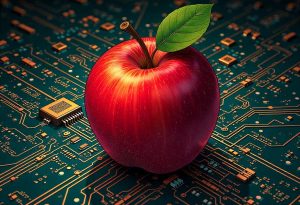Chromebook face-off: Three top brands compared
![]() Chromebook sales are up 250 percent, accounting for 35 percent of notebook sales, according to a report by NPD Group, Inc. Chromebooks are generally priced lower than standard notebooks, although Microsoft, Corp. has recently begun pushing back with similarly priced devices running Windows 8.
Chromebook sales are up 250 percent, accounting for 35 percent of notebook sales, according to a report by NPD Group, Inc. Chromebooks are generally priced lower than standard notebooks, although Microsoft, Corp. has recently begun pushing back with similarly priced devices running Windows 8.
As the name implies, a Chromebook runs Google Chrome OS, an operating system that is essentially the Chrome browser sitting on top of a thin layer of Linux and Google’s custom graphical interface. What it lacks in any sort of traditional desktop experience, it makes up for in speed, ease of use, lack of viruses and a web-centric, cloud-based, always connected philosophy.
The following is a comparison of three of the top selling Chromebooks on the market: the Samsung Chromebook 2, Acer C720P and Toshiba Chromebook. They are close in specifications and price with a few differences. Other Chromebooks worth noting but not mentioned here include multiple versions from HP, ASUS and Dell.
This brief guide aims to highlight the differences in the Samsung, Acer and Toshiba Chromebooks and help you choose the best one for your needs. It should also give you an idea what to look for in other Chromebook brands. Google Inc.’s own Chromebook Pixel has been omitted, as it is in a class of its own, priced much higher and not really comparable in terms of specifications.
The 3 top-selling Chromebooks compared
CPU performance
Samsung’s Exynos processor is designed for mobile devices: phones and tablets, but it is also a 1.9 GHz, 8-core chip. This means that its power is quite comparable to the Intel Celeron 2955U CPUs in the other two laptops. In Geekbench single-core performance, the Celerons beat the low-power mobile chip, but it has 8 cores, which allow it to beat out the 2-core chips in multi-core performance. Geekbench is a cross-platform benchmark system for single and multi-core testing that can be configured to simulate real-world usage. When it comes to multitasking, the Samsung chip wins. The question is, how efficient is Chrome OS at multitasking? Will each tab in the browser utilize the 8-core technology? In real-world performance, this is difficult to know.
Memory
All three devices sport DDR3L 1600MHz RAM, so there should be no difference in terms of memory speed. However, Samsung is the clear winner with 4GB of RAM for nearly the same price as the others running only 2GB.
Storage
The storage comparison gets a little tricky. All three use flash memory drives, with the Acer and Toshiba using solid state drives (SSD) and the Samsung using eMMC. The Acer comes with either 16 GB or 32 GB, and the 32 GB is still less than you would pay for 16GB on the other Chromebooks. All three offer 100GB of Google Drive storage, but come with a 2-year limit, after which you would have to pay Google to keep your data from being zapped. This amounts to little more than a gimmick in terms of storage size comparison, unless you only plan on using your Chromebook for 2 years. If local storage is important to you, Acer is the clear winner.
For expansion storage, Samsung has the smallest with a microSD card. The other two have full SD card slots, which would also support microSD with adapters. Therefore, Acer and Toshiba each win a point for expansion storage, unless you just prefer the smaller size Samsung offers.
Display
Toshiba’s Chromebook is significantly larger (13.3 inches) than the other two (11.6 inches). What is important to note, however, is that they all have the same resolution. While you will get a larger image and text on the Toshiba, do not expect extra screen real estate. Acer offers a touchscreen option, which is listed as $299 on the company’s website. If you can actually find a retailer selling it for that price and touch is important to you, Acer’s Chromebook has a clear advantage. If sizes matters, Toshiba wins.
Battery life
The battery life comparison can also get tricky. On the surface, Toshiba claims to squeeze 9 hours out of its Chromebook, while the other two each claim closer to 8. The touch version of the Acer will probably get closer to 7, depending on how much you use the touch screen, and plenty of other factors play into battery life. Real-world application may be different. If you believe the manufacturers’ claims, Toshiba wins this round.
Interfaces
All three devices have HDMI-out, webcams with very little details about them, combo microphone/headphone jacks and 2 USB ports. Both the Samsung and Acer Chromebooks have one USB 2.0 and one USB 3.0 port. Only the Toshiba offers two full USB 3.0 ports. If USB speed matters, Toshiba wins. If not, they are all equal.
Appearance
The Toshiba Chromebook is silver with a black keyboard and looks very similar to a Macbook Air. The Samsung Chromebook is probably the most unique in that its exterior resembles a stitched leather case. It is all black, white or “luminous titan”, including the keyboard and touchpad. The Acer Chrombook is similar in design to the Toshiba, although it comes in either white or black with a black keyboard and white or black touchpad.
The Numbers
| Device | Samsung XE503C12 |
Acer C720P | Toshiba CB30-A3120 |
| Price (USD) | $319.99 ($299.99 in store) | $299.00 touch / $249.00 | $299.99 |
| CPU | Samsung Exynos 5 Octa 5420 (1.9 GHz) 8 cores2MB L2 cache |
Intel Celeron 2955U (1.4 GHz) 2 cores2MB Smart Cache |
Intel Celeron 2955U (1.4 GHz) 2 cores2MB Smart Cache |
| Geekbench single-core / multicore |
980 / 2723 | 1350 / 2387 | 1350 / 2387 |
| Memory | 4GB DD3L 1600MHz | 2GB DDR3L 1600MHz | 2 GB DDR3L 1600MHz |
| Graphics chip | Intel HD Graphics | Intel HD Graphics | Intel HD Graphics |
| Display | 11.6″ 1366×768 LED Backlit |
11.6″ 1366×768 LED Backlit |
13.3″ 1366×768 LED Backlit |
| Storage | 16 GB eMMC + 2 years free 100GB Google Drive | 32 GB + 2 years free 100GB Google Drive | 16 GB SSD + 2 years free 100GB Google Drive |
| External storage | Micro SD | Secure digital SD card | SD, miniSD, microSD, SDHC, SDXC |
| Webcam | 720p HD webcam | Webcam (no specs given) | HD Webcam |
| Amazon prices (USD) |
$299.99 -$351.54 for 13-inch version | $198.61 ($239.00 for 32 GB) $359.59 for touchscreen | $297.26 |
| Battery life | 4080 mAh (Up to 8 hours) | 3950 mAh (up to 7.50 hours) | 4-cell/52Wh (up to 9 hours) |
| Interfaces / Ports | 1 HDMI, 1 USB 2.0, 1 USB 3.0, mic / headphone combo | 1 HDMI, 1 USB 2.0, 1 USB 3.0 mic / headphone combo | 1 HDMI, 2 USB 3.0, mic / headphone combo |
The Verdict
The best device depends on your precise needs and budget. If price is the ultimate deciding factor, you should go for the Acer C720 without the touch screen. You can likely find it for under $200. Moreover, if you need storage space, especially if you plan on installing another OS like Ubuntu, the Acer is also the clear favorite. In terms of raw processing power and available memory, the 8-core Samsung Chromebook 2 with 4GB of RAM is the obvious winner. For better battery life and a bigger screen (i.e. larger text), go with the Toshiba Chromebook. If you want a touchscreen for a pretty low price, the Acer C720P is the only choice.
photo credit: Morid1n via photopin cc
A message from John Furrier, co-founder of SiliconANGLE:
Your vote of support is important to us and it helps us keep the content FREE.
One click below supports our mission to provide free, deep, and relevant content.
Join our community on YouTube
Join the community that includes more than 15,000 #CubeAlumni experts, including Amazon.com CEO Andy Jassy, Dell Technologies founder and CEO Michael Dell, Intel CEO Pat Gelsinger, and many more luminaries and experts.
THANK YOU









